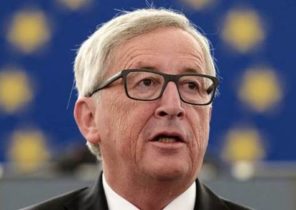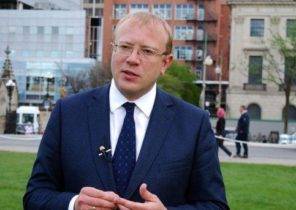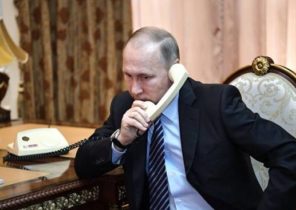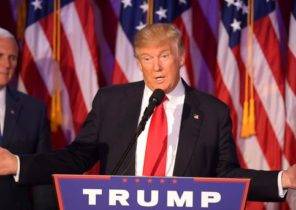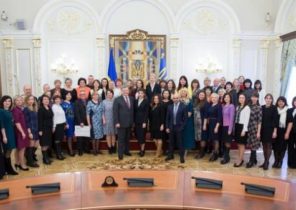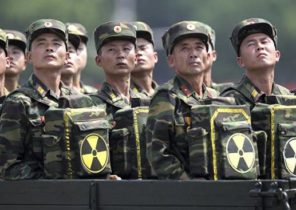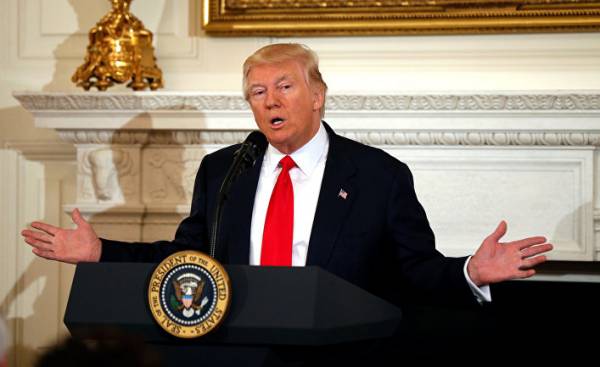
If you believe the rumors, the Kremlin understands that the sensational accusations against the former adviser on national security issues Michael Flynn (as Michael Flynn) and attorney General Jeff and Roman sessions (Jeff Sessions), which I feel deceived Russia, are part of a massive campaign of the Congress, designed to block attempts by President Donald trump to achieve détente in relations with President Vladimir Putin.
As one of the arguments in favor of this view is the Watergate scandal: the complicated steps of President Richard Nixon, which he made during the 1969-1972 years to improve relations with Soviet leader Leonid Brezhnev, was blocked by the unfolding Watergate scandal, which has led to resignation of Nixon.
At the beginning of his presidency in 1969, Nixon, along with his adviser on national security Affairs Henry Kissinger (Henry Kissinger) tried to find such initiatives that would allow the US and the USSR begin to establish relations in the framework of the so-called thaw in the cold war period — this was then called policy of détente. It was a pretty bold and risky diplomatic initiative, given the disastrous war in Vietnam and the global arms race.
In the period from 1969 to 1972, negotiations were held Sal-1, the purpose of which was the strategic arms limitation. In addition, there were negotiations on the signing of the Treaty on the limitation of anti-ballistic missile systems, designed to limit the number of places and the weapons each side can deploy.
In addition, measures were taken for the preparation for the signing of the biological weapons Convention which committed both superpowers to get rid of entire classes of weapons, such as, for example, anthrax.
These agreements, which today seem very reasonable, at the time caused a lot of controversy, because 25 years later apocalyptic confrontation, few were willing to trust the word of the USSR.
An experienced and respected Senator Henry Jackson (Henry Jackson) spoke very sharply against the signing of the salt-1, which took place on 26 may 1972, and against the Treaty on the limitation of anti-ballistic missile systems. “These agreements are likely to lead to an increase in the intensity of the arms race that will cause serious uncertainty, destabilizing the situation and would entail significant costs.”
Jackson, who vied for the presidency, added that the numerical superiority of the weapons was the Soviet Union, “must become the main object of a thorough investigation of Congress.”
The Nixon administration cautiously continued the policy of detente along with the so-called vietnamization and careful steps towards the establishment of relations with China. It was an election year, so the hardliners prevailed in the ranks of the democratic majority in Congress, and among the Republicans of the Congress, adheres strongly anti-Communist stance.
Moscow perceived the reelection of Nixon in 1972 and his dynamic inauguration speech, which he delivered in January 1973, as a confirmation of the willingness of the US to follow the path of the discharge. However, after the summer of 1972 the Watergate scandal continued to haunt Nixon, poisoning his relationship with Congress, and in may 1973, an open political war with the Senate Committee on Watergate, and the hearings they were transmitted on television all over the country.
By September 1973, Brezhnev was already horrified by the strong desire of Democrats to accuse Nixon’s criminal behavior. Ambitious Kremlin wanted to refrain from signing large-scale agreements and switch to a more modest and time-limited agreements, such as agreements on the terms of trade. He saw Watergate as a failure of plans.
During the presidential briefing, 5 September 1973 representatives of the CIA reported to Nixon on Brezhnev’s opinion on the future of the policy of detente: “Brezhnev took the opportunity to praise Nixon and complain about the Watergate. He voiced his assumption that the opponents of rapprochement between the USSR and the USA trying to take advantage of the Watergate scandal, adding that he would like to consolidate the policy of detente is so strong that, in future, the US did not come back to this issue.”
The dramatic events of the following year strengthened the USSR in the opinion that the Watergate scandal is a riot of Congress, seeking to sabotage the thaw and resume the cold war.
In the end, the “Saturday night massacre”, which occurred in October 1973 in the Ministry of justice as a result of Nixon’s refusal to give prosecutors audio recordings of their talks in the oval office, happened on the background of confrontation between the USSR and the USA in the Arab-Israeli war of 1973. The white house and the Kremlin were scared of the danger looming threat, and, according to historical records, Brezhnev refused further intervention, when he learned that the U.S. changed the alert level from the fourth to the third.
However, no attempts Brezhnev and Nixon to prevent the intensification of the cold war could not stop the Democrats controlled Congress car the Watergate investigation. Meeting of Brezhnev and Nixon in Moscow in late July, 1974, has lost all its meaning as soon as the U.S. Supreme court ordered Nixon to give all the records the Prosecutor’s office on 30 July.
Nixon resigned 10 days later after congressional Republicans turned away from him, and the Kremlin has concluded that supporters of the cold war, Washington has made a real coup, not to put up with a rapprochement with Russia.
Perhaps the heirs of the Soviet Kremlin believes that today’s events in Washington unfold on the same circuit: the hawks of Congress seek any means to prevent the administration to move closer to President Vladimir Putin and, probably, test administration trump strength by means of a constitutional crisis.
The fact that in his address to Congress on February 28 trump did not mention about Russia, was even more questions about whether the President is ready to embark on the path of detente in relations with Russia.
The Kremlin does not want to wait for better times. Moscow seeks to strengthen its ties with other Eurasian superpower, China, and maybe wants to give Congress the opportunity to engage in finger-pointing and care about their interests. Meanwhile, Russian leaders will begin to prepare for crises and confrontations that may become part of the failure of this round of discharge, as happened during and after the Watergate scandal.

